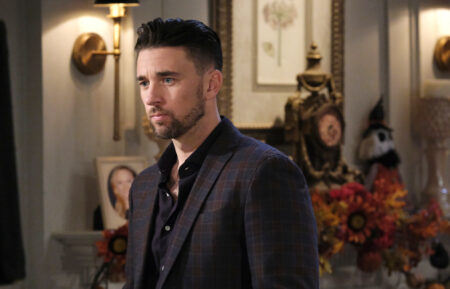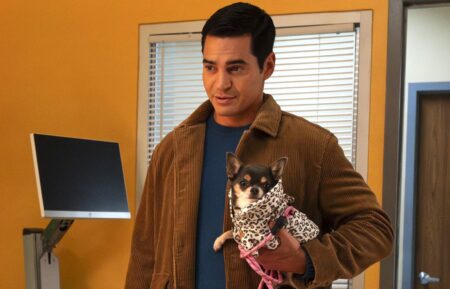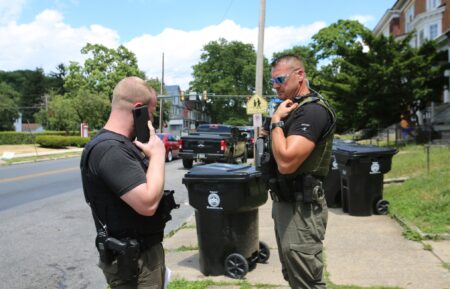5 Disturbing Diddy Details Revealed in ‘Making of a Bad Boy’
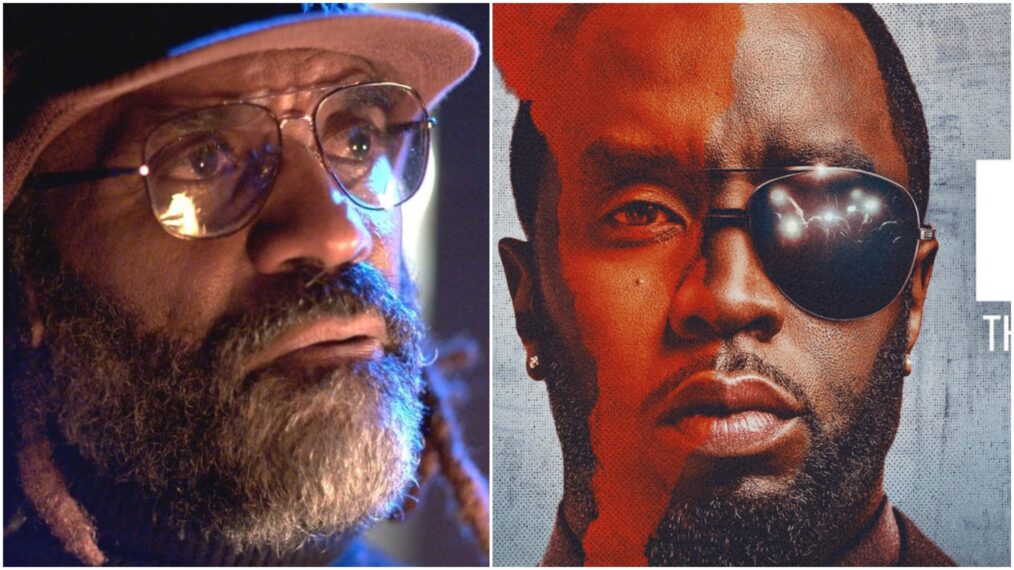
This post contains discussions of domestic violence, sexual assault, and human trafficking.
Peacock’s new documentary about Sean “Diddy” Combs attempts to cover a whole lot of ground in a relatively short amount of time, which makes the feature feel unglued, unfocused, and unsure of itself. However, thanks to some poignant first-person testimonials — including one from Combs’ oldest friend — it does still offer some chilling revelations about the disgraced rap mogul that make it worth the watch.
Here are some of the biggest takeaways from Diddy: The Making of a Bad Boy.
His childhood may have inspired his notorious party life.
The single most compelling and informative part of the documentary is the interview with the man Combs grew up with, Tim Patterson, which is probably why his conversation pieces serve as the spine of the entire thing.
In his interviews, Patterson revealed that after Combs’ father died — allegedly, by murder after feeding information to the police about his gang associations — he and his mother were invited to move into their home, and Patterson regarded Combs as well-to-do thanks to his upscale fashions and nicer house. The two then grew up together, and when Combs was picked on as a child, Patterson protected him until he deployed for the military. When he came back from service, he was surprised to hear Combs refer to himself as “Puffy” but believed it was a defense mechanism to set aside the part of him that was bullied.
Patterson maintained that while Combs has been “monsterized,” it may be a product of his childhood, in which his mother regularly threw very adult parties at the home that the then-children witnessed. Patterson’s disappointment over what’s become of his “brother” is palpable, and he left the music industry to live off the grid after too many body bags began to pile up in the business.
His own bodyguard disputes hero accounts from the deadly CCNY stampede.
One of Combs’ first big moves on the East Coast rap scene was to promote a fundraiser with then-mentor Heavy D. The event, which was meant to be an AIDS benefit and took place at the City College of New York in Deceber 1991, was heavily promoted, and thousands of people showed up — nearly twice the amount that could fit into the gymnasium.
As a result of a crowd rush, several people were crushed, including nine fatalities. Two victims’ relatives participated in the documentary and directly blamed Combs for over-selling the event and denying responsibility. One said he was insulted by but reluctantly accepted a $50,000 settlement for his sister’s wrongful death under pressure from Combs, whose net worth at the time was a reported $40 million.
If that wasn’t shocking enough, there were also conflicting reports — even among the people who participated in the documentary — about whether Combs attempted to render aid to the victims when everything went asunder. While DJ EZ Lee reported seeing Combs attempt to give “mouth-to-mouth” to people in the crowd, Combs’ bodyguard Gene Deal vehemently denied the same, calling it a “flat-out lie.”
His late ex’s former flame believes he had a hand in her death — and his own near-death experience.
Another jaw-dropping contribution to the documentary is that of Al B. Sure!, who had a prior relationship (including a son) with Combs’ on-again-off-again girlfriend Kim Porter. While noting that there were legal constraints to his testimonial, thanks to pending litigation, Al B. Sure! shared his suspicion that Combs and his associates may have been responsible for the sudden death of Porter, whom he’d seen in good health just two weeks prior.
Though her cause of death was officially ruled as pneumonia-related, and even Porter’s children dispute the allegation there was any foul play in her passing, Al B. Sure! insisted there was something suspicious about her sudden condition. Plus, he remains convinced that his own devastating health scare might’ve been Combs’ doing as well, believing himself to be the victim of an attempted assassination. (The allegations were denied by Combs’ reps in written statements provided in the documentary.)
Combs’ bodyguard doesn’t dismiss the idea that he contributed to Biggie Smalls’ murder.
There have long existed rumors that Combs may have had something to do with the shooting death of Christopher Wallace a.k.a. The Notorious B.I.G. or Biggie Smalls. Deal revealed that he was with Combs on the night of the murder, when they were heading to a party, and he did not discount the possibility that it was a setup by his own boss.
In fact, he revealed that Wallace wanted to go to London, but Combs insisted he would not be traveling and was the one to invite Wallace to the party they were en route to at the time of his murder. Per Deal, Wallace “wanted out” of Bad Boy Records as a result of the strict contractual requirements that it would keep the “publishings” of its artists.
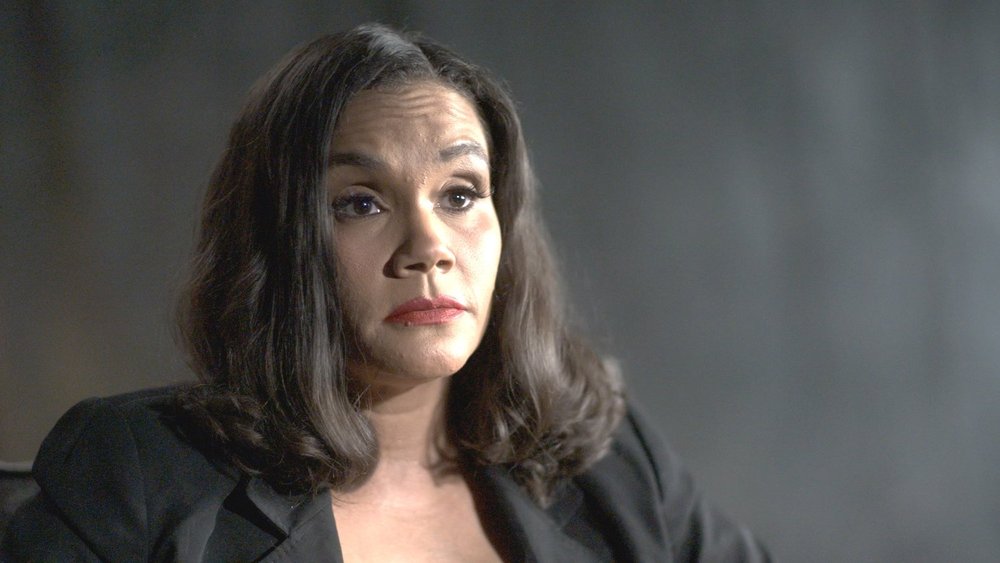
Peacock
One alleged victim of Combs’ sexual crimes barely escaped to tell the tale.
The documentary scratches the surface of the many, many sexual misconduct allegations against Sean Combs, including his supposed “after after parties” and the videotapes he may or may not have made of famous people in compromising positions. By far, the most horrific parts of that discussion are those of the alleged victims.
One such is Sara Rivers, who participated in Combs’ Making the Band reality competition series and alleged that while they were alone, he “touched [her] in a place that he shouldn’t have” and made her feel “intimidated” and fearful of being alone with him again.
Another is the makeup artist for Combs’ ex Cassie Ventura, who she allegedly witnessed being brutalized by Combs after he came home angry at her for being at a party. (Combs was later captured on security cameras physically assaulting her at a hotel in 2016.)
Ashley, who was too afraid of retribution or recapture to show her face in the documentary, also spoke out and alleged that she was invited to Combs’ home where she was raped by Combs and others and warned by Combs’ chief of staff Kristina Khorram that she could be sent off anywhere in the world. Ashley said she managed to escape to a neighbor’s home, despite losing her keys, clothes, and phone, but was instructed by the police to find her own way home. (Again, in the comments provided to the documentarians, these allegations were denied or comments declined.)
Diddy: The Making of a Bad Boy, Streaming Now, Peacock
If you or someone you know is the victim of domestic abuse, contact the National Domestic Violence Hotline at 1−800−799−7233.
If you or someone you know is the victim of sexual assault, contact the Rape, Abuse & Incest National Network‘s National Helpline at 1-800-656-HOPE (4673). If you or a loved one are in immediate danger, call 911.
If you or someone you know is the victim of human trafficking, call the National Human Trafficking Hotline at 888-373-7888 or text INFO to 233733. If you or a loved one are in immediate danger, call 911.
From TV Guide Magazine
Crime, Comedy & Convenience Stores: Unwrapping Hulu's 'Deli Boys' With the Cast
Cupcakes, corndogs…and cocaine?! Two brothers find themselves in a hilarious pickle when they inherit an unseemly bodega biz in Hulu’s new comedy Deli Boys. Find out how The Sopranos and Real Housewives of Orange County influenced the cast. Read the story now on TV Insider.






